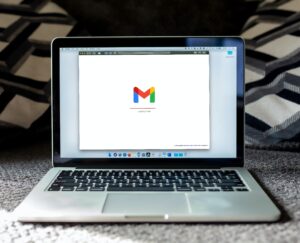Introduction
In the rapidly evolving digital era of today, selecting suitable computing equipment is essential. Chromebooks are becoming a more and more popular option owing to their distinct features and functionalities. In this comprehensive guide, we will explore the features of Chromebooks, how they differ from conventional laptops, their advantages and disadvantages, and who could make use of these cutting-edge gadgets.

How is a Chromebook Different from a Laptop?
Google’s Chrome OS, which powers Chromebooks, distinguishes them from conventional laptops with their lightweight build, quick startup speeds, and easy Google service integration. Chromebooks work primarily with web applications, unlike laptops, which makes them quite effective for jobs that require connectivity to the web. What distinguishes them is their emphasis on cloud computing, which guarantees that users can access their files and applications from any location with an internet connection.
Which is Better: A Chromebook or a Laptop?
The choice between a Chromebook and a laptop depends on individual needs. If your work primarily involves web-based applications, emails, and document editing, a Chromebook offers a streamlined and cost-effective solution. You can also access the Google Play store and download apps to your Chromebook.
However, if you require resource-intensive software, gaming capabilities, or specific offline applications, a traditional laptop might be a better choice. Consider your priorities and usage patterns before making a decision.
Can We Use a Chromebook as a Normal Laptop?
It depends!! Chromebooks work fine for normal tasks, making them a good option for professionals, students, and regular people. When it comes to activities like web browsing, streaming, document management, and video chat, they are the best. Chromebooks work well for individuals who use web-based applications like Google Docs. It’s crucial to note that Chromebooks have their own limitations.
While they boast affordability and user-friendly interfaces, they may not be compatible with specific software commonly used on Windows or macOS devices. If you are a professional designer or an architect or a video editor who requires specific heavy software to be installed in your system, this may not be your cup of tea. To sum up, Chromebooks are excellent for document management and web browsing. So, users should consider their specific software needs before opting for a Chromebook.
A little bit more about Chromebooks
Storage:
When you buy a Chromebook you will get 100GB of free Google Drive storage as all your documents will be automatically saved on Google Drive
Battery Life:
While Chromebooks offer numerous benefits, they do have limitations. Their reliance on internet connectivity means certain tasks might be challenging without a stable connection. Additionally, offline functionality is limited, impacting activities like document editing in the absence of the Internet. Resource-intensive applications and high-end gaming are also not Chromebook’s strong suits.
Who Can Use Chromebooks?

Chromebooks target only casual-using audiences. Students and teachers find them handy for their portability, affordability, and integration with educational tools like Google Classroom. Professionals appreciate their simplicity and efficiency, especially for tasks involving emails, web browsing, and online collaboration. Casual users benefit from Chromebooks’ ease of use, making them ideal for entertainment and basic productivity tasks.
Conclusion
Choosing a Chromebook or a laptop depends on your user’s situation. If your sole purpose is just online activities and if your apps are available on Google playstore choose Chromebook, If you need to download and install more software programs go for a laptop.
Frequently Asked Questions (FAQs)
Q: Can I run Photoshop or video editing software on a Chromebook?
A: Chromebooks are not ideal for resource-intensive applications like Photoshop or high-end video editing software due to their limited processing power.
Q: Are Chromebooks compatible with Microsoft Office applications?
A: Yes, Chromebooks support Microsoft Office applications through the web-based Office 365 suite and Android apps, ensuring compatibility and productivity.
Q: Can I print from a Chromebook?
A: Yes, Chromebooks can print to compatible printers either through Google Cloud Print or via USB connection, providing convenient printing options.
Q: Is it possible to use a Chromebook offline?
A: While Chromebooks primarily rely on internet connectivity, many applications offer offline functionality, allowing users to work without an internet connection.
Q: Are Chromebooks secure from viruses and malware?
A: Yes, Chromebooks are designed with built-in security features, including automatic updates and sandboxing, providing robust protection against viruses and malware.
Q: Can I use Zoom or other video conferencing apps on a Chromebook?
A: Yes, popular video conferencing apps like Skype, Zoom, and Google Meet are available for Chromebooks, enabling seamless communication and collaboration.

